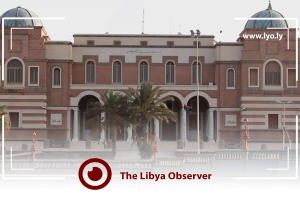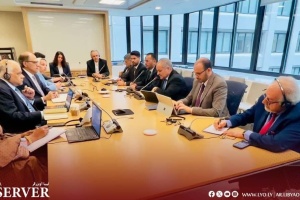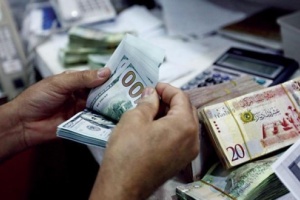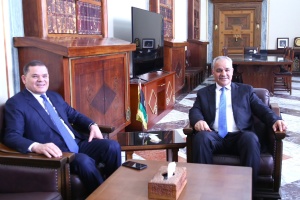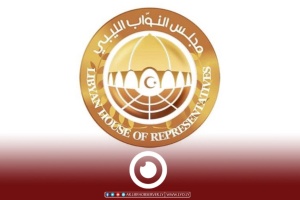The Speaker of the House of Representatives (HoR), Aqila Saleh, announced that the HoR's Finance Committee approved the proposal of the Central Bank of Libya to impose a tax on the foreign currency exchanges, stressing that the HoR is in the process of issuing a decision in this regard.
Saleh explained in a television interview that the HoR was convinced of the opinion of the experts of the Central Bank of Libya regarding the importance of imposing a tax in order to control the value of the Libyan dinar, indicating that state-subsidized goods would not be included in this decision.
The Governor of the Central Bank of Libya, Al-Siddiq Al-Kabir, proposed in a letter addressed to Saleh ten days ago to adjust the exchange rate of the Libyan dinar against foreign currencies, and to impose a 27% tax on foreign exchange.
Meanwhile, the Speaker criticized the UN envoy to Libya, Abdoulaye Bathily's invitation for the five parties to a comprehensive dialogue, indicating that this step constituted a disruption of the political process. He pointed out that the meetings aimed at re-discussing the electoral laws would return the situation to square one, considering it a step backward, especially since Bathily understood that the electoral laws were correct and acceptable.
Saleh confirmed that there was an international and local consensus to form a new government to lead the country to general elections, indicating that the disagreement is based on how to form it. He believed that it was possible to reach the formation of a unified government in the month of Ramadan.
Commenting on the Sirte conference on national reconciliation, which is scheduled to be held next April, the Speaker stressed that they would intervene directly in the file if the conference did not achieve positive results, indicating that their intervention could be through the HoR's Justice and Reconciliation Committee. He criticized the role of the Presidential Council in this file, noting that it had not achieved any results so far.



